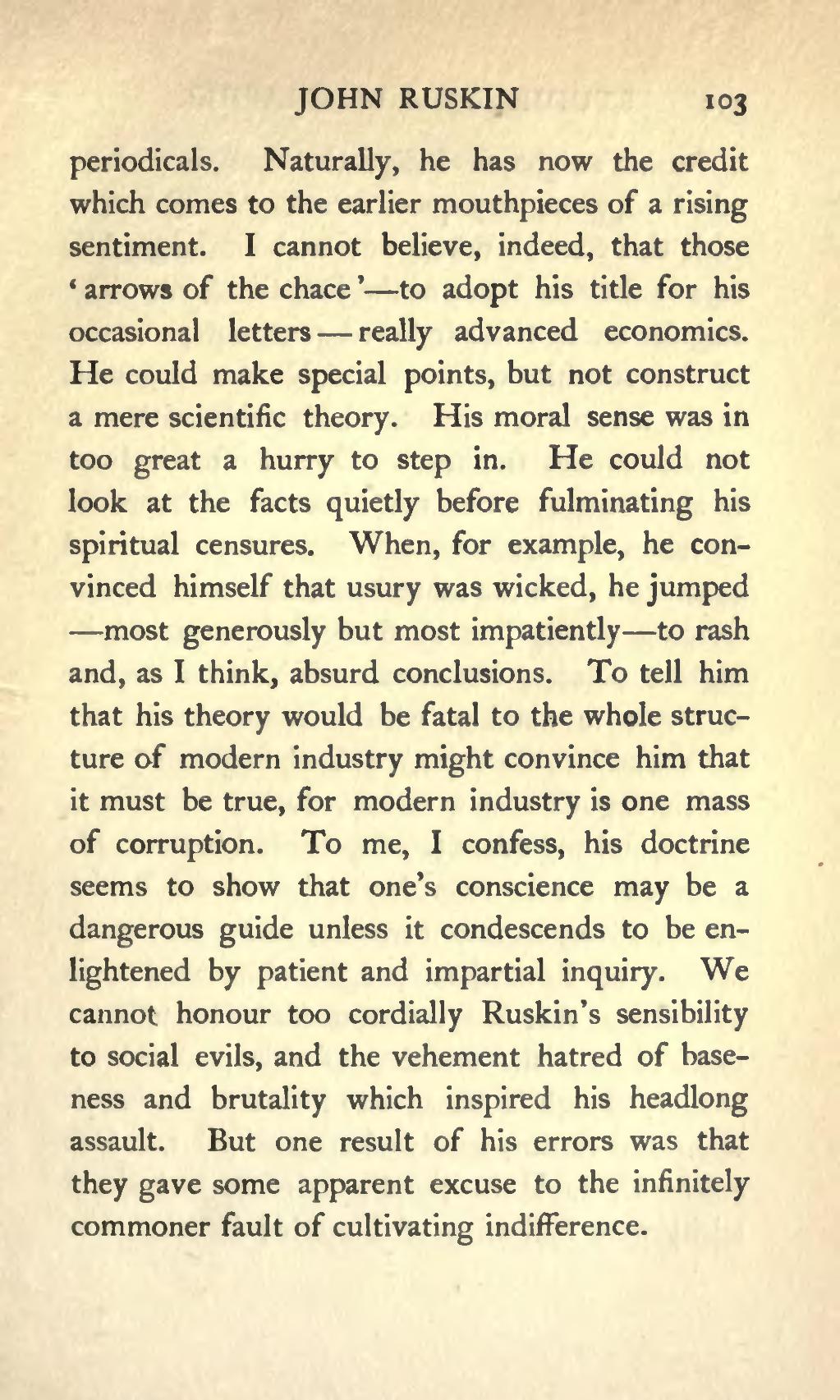periodicals. Naturally, he has now the credit which comes to the earlier mouthpieces of a rising sentiment. I cannot believe, indeed, that those 'arrows of the chace'—to adopt his title for his occasional letters—really advanced economics. He could make special points, but not construct a mere scientific theory. His moral sense was in too great a hurry to step in. He could not look at the facts quietly before fulminating his spiritual censures. When, for example, he convinced himself that usury was wicked, he jumped—most generously but most impatiently—to rash and, as I think, absurd conclusions. To tell him that his theory would be fatal to the whole structure of modern industry might convince him that it must be true, for modern industry is one mass of corruption. To me, I confess, his doctrine seems to show that one's conscience may be a dangerous guide unless it condescends to be enlightened by patient and impartial inquiry. We cannot honour too cordially Ruskin's sensibility to social evils, and the vehement hatred of baseness and brutality which inspired his headlong assault. But one result of his errors was that they gave some apparent excuse to the infinitely commoner fault of cultivating indifference.
